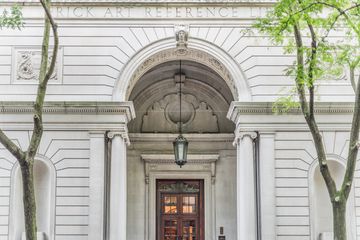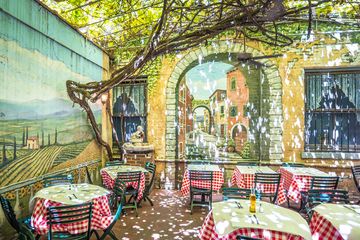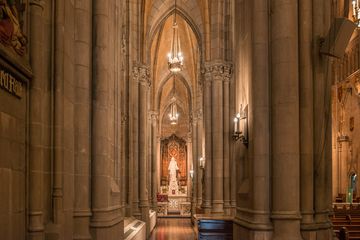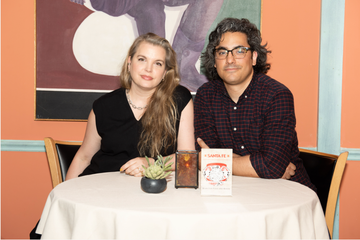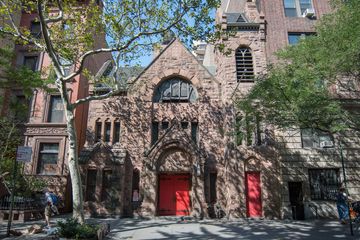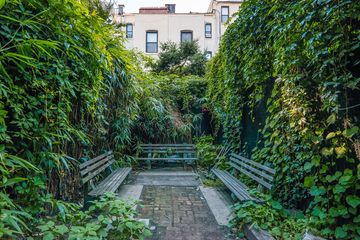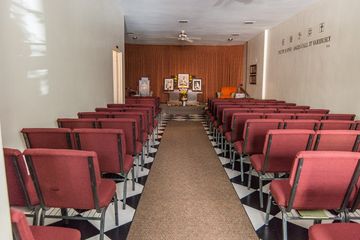Raised by parents from Sicily and Naples, Nick Mormando grew up in an Italian neighborhood in Brooklyn, exposed to authentic Italian food in a comfortable setting. "We were the house on the block that was always cooking something, " Nick explained. And he still is, having stayed true to his family recipes since opening the neighborhood-centric Polpette 71 restaurant in November of 1994. The front room is set up with white tablecloths, bottles of Pellegrino and photographs of "The Gates" by Christo and Jean-Claude, which decorated Central Park in 2005. On my first visit to Polpette 71, when it was still operating under its original name, Bello Giardino, Nick asked if I would like to sit outside in the garden. I looked up in surprise and eagerly replied, "Yes please. " Truly a hidden gem on West 71st, this quiet respite has become a favorite of mine over the last several years. The red-and-white checkered tablecloths, small bottles of olive oil, and a massive mural by Hans de Castellane - depicting an Italian landscape with ocean views and coastal dwellings - brings a smile to my face every time I stroll in. Overhead, a weaving grape vine, grown out of a tiny root planted years ago from Nick's childhood garden, opens to pockets of natural light. The star of the culinary show has been the "Nicky" meatball. Voted the best in the boroughs by Dish du Jour Magazine in 2009, it has since made guest appearances on television shows, and inspired Nick's latest restaurant, Polpette, on Amsterdam Avenue. Other favorites include the penne alla vodka, the linguini and clams, which Nick fondly remembers his mother serving twice a month as he was growing up, and my personal favorite, the eggplant parmigiana. In addition to the food and décor, the ambiance is set by the strong relationships the restaurant has established. Without a doubt, this is a neighborhood haunt. Special occasions are commonly celebrated, guests are unafraid to dine alone, often engaging in comfortable conversations with the servers, and diners are referenced by names. "We are that kind of place, " Nick smiled, recalling a couple who had met in his restaurant, moved outside of New York, but returned to Polpette 71 for their son's first birthday.
